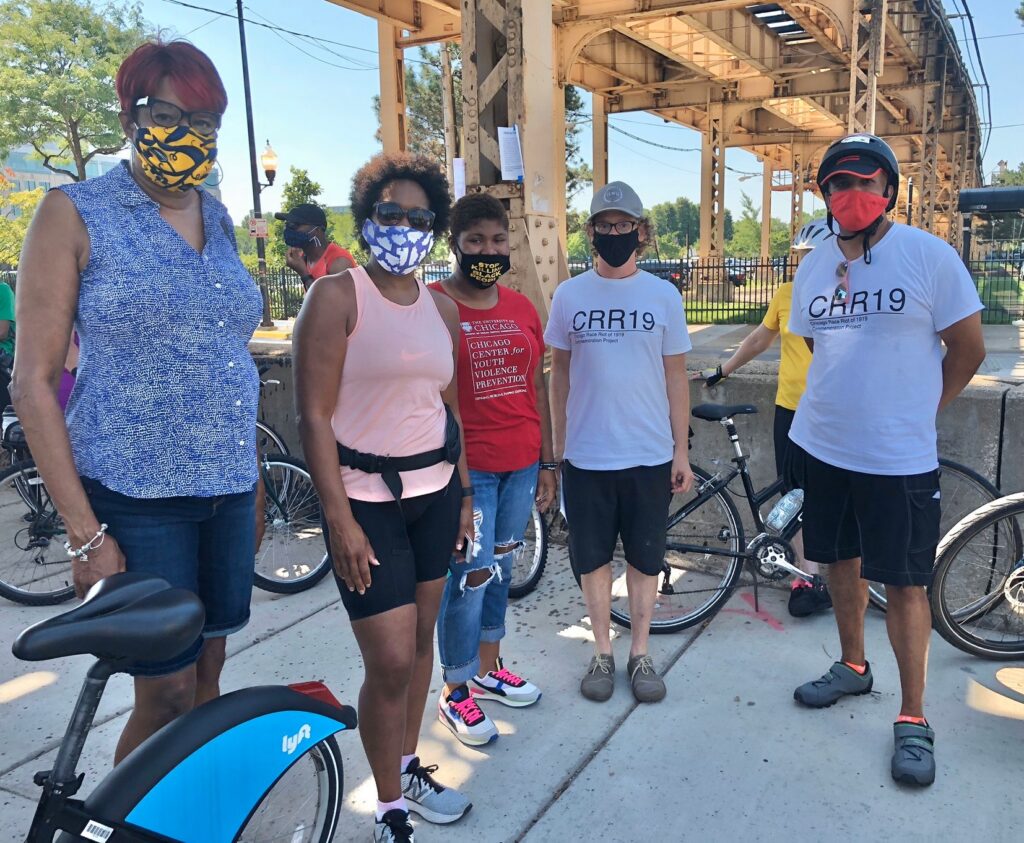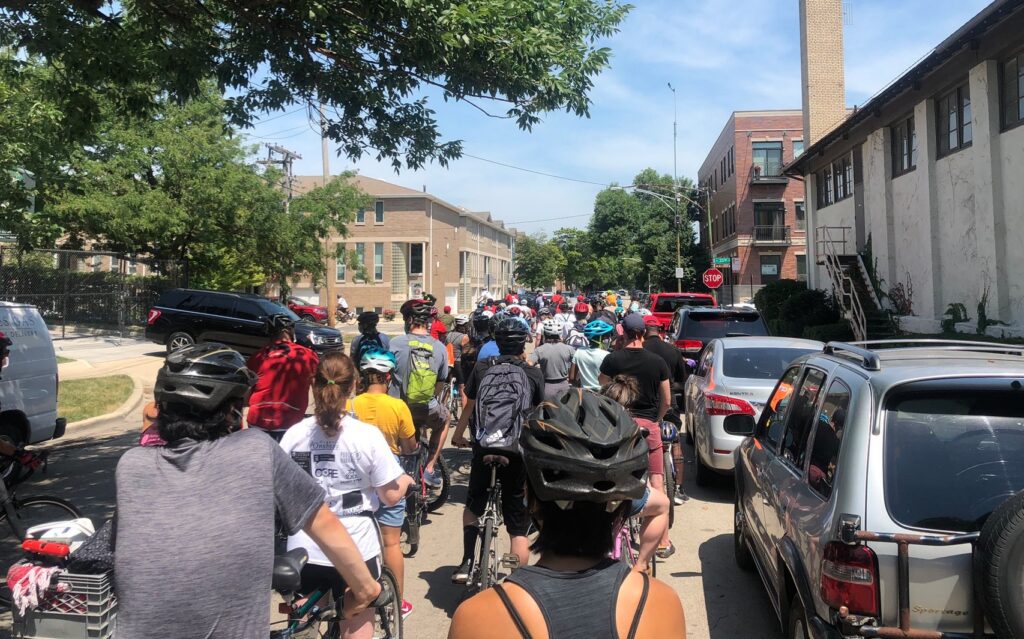Three Questions: Q&A with the co-directors of the Chicago Race Riot 1919 Commemoration Project, Peter Cole, professor of history, Western Illinois University; and Franklin Cosey-Gay, executive director, Chicago Center for Youth Violence Prevention, University of Chicago.

The Chicago Race Riot of 1919 Commemoration Project (CRR19) exists to commemorate the worst incident of racial violence in the city’s history. Formally launched on the 100th anniversary of the 1919 riot, we believe that now is the moment for Chicago to confront its bloodiest chapter and heal the wounds that time alone has not.
Project Funded by Illinois Humanities
The project supports creation of dispersed, city-wise public art to mark the centennial of the bloodiest incident of racial violence in city history.
Q1: How do you see the arts/culture/humanities as being essential?
Peter & Franklin: We believe art and the humanities are central to every community! For far too long, racism and other traumatic experiences have forced marginalized communities into survival mode, even before COVID-19. We sincerely hope that combining public art and history can raise awareness about the historical roots of current inequities. This aspiration led us to connect with Firebird Community Arts and its trauma-informed arts initiative, Project FIRE, to design our public art. Through this partnership, we aim to combine public art and history to promote empathy, expand the narrative on marginalized communities, and create a path toward racial healing and justice.
Q2: What is the most important thing people should know about your work?
Peter & Franklin: For over 101 years, Chicago has done almost nothing to acknowledge and repair damage caused by the Chicago Race Riot of 1919, in which 38 people were killed and 537 injured. We are the only group working to elevate this history. We do so through presentations to community, educational organizations, and religious groups, and through bike history tours in Chicago neighborhoods, including Bronzeville, Bridgeport, and Canaryville. CRR19 is inspired by a German art project, called Stolpersteine, which marks locations where Holocaust victims last lived. We are uniquely positioned to commemorate the victims using public art created by young artists, who have been impacted by recent traumatic, violent experiences.
Q3: Who makes your work possible?
Peter & Franklin: CRR19 is a small operation but we are fortunate many community groups support us! Our primary partners are the Greater Bronzeville Community Action Council, Organic Oneness, Chicago Center for Youth Violence Prevention (at the University of Chicago), Bright Star Community Outreach, and Firebird Community Arts which will design and create our markers. Other groups who have endorsed us include Chicago Teachers Union, Illinois State Conference of the National Association for the Advancement of Colored People (NAACP), Experimental Station/Blackstone Bikes, Major Taylor Cycling Club of Chicago, The Timothy Corporation, Good Kids Mad City, Illinois Institute of Technology Office of Community Affairs, Public Narrative. We have also been endorsed by Alderman Pat Dowell (3rd Ward) and Alderman Sophia King (4th Ward).
Q4: Anything else you’d like to add?
Peter & Franklin: We have begun planning a long-distance bike tour to educate and fundraise in June 2021. COVID permitting, we will attend commemorative events in Tulsa, Oklahoma, during the centennial of the massacre in which about 300 Black people were brutally killed. Then, we will pedal 700 miles over the following week, ending in Chicago’s Loop where Historic Route 66 ends and where the Art Institute stands. One block west of that location, near Adams Street and Wabash Avenue, Paul Hardwick, a Black man, was killed in 1919. With luck, we will have a marker installed there by the time we arrive. The co-directors of CRR19 and many community partners are already committed to this amazing experience, but we hope to be joined by dozens of others, including you!
For more about CRR19:
Website: chicagoraceriot.org | Facebook: @ChicagoRaceRiot | Instagram: @ChicagoRaceRiot | Twitter: @ChicagoRaceRiot
The Illinois Humanities Grantee Partner Spotlight
Bi-monthly Illinois Humanities highlights the work of our Community Grants program partners through our “Grantee Spotlight.” It shines the light on our grantee partner’s work, offering details about the organization and the funded project, as well as a Q&A with a team member at the organization. More: ILHumanities.org/Spotlight
About Illinois Humanities
Illinois Humanities activates the humanities through free public programs, grants, and educational opportunities that foster reflection, spark conversation, build community, and strengthen civic engagement. Illinois Humanities is a nonprofit organization and the state’s affiliate for the National Endowment for the Humanities. We are committed to ensuring access to free, high-quality humanities experiences in Illinois, particularly for individuals living on low incomes, counties and towns in rural areas, small arts and cultural organizations, and communities highly impacted by mass incarceration.
Learn more at ilhumanities.org and on Facebook, Twitter, Instagram and LinkedIn @ILHumanities.
